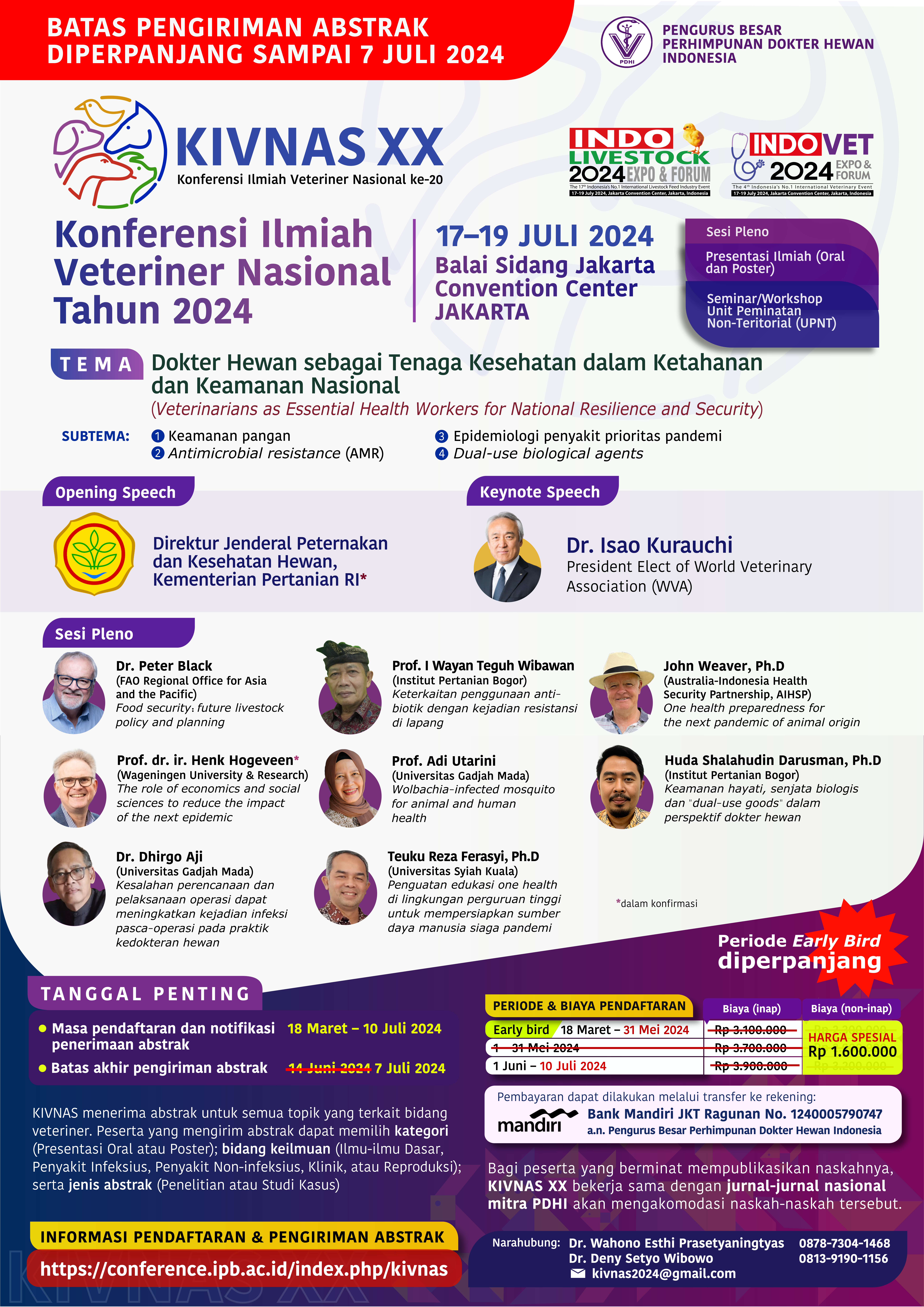Impact of Age on the Level of Intestinal Parasites Infection in Exotic Pets
Keywords:
age, bearded dragon, endoparasite, gastrointestinal, Leopard geckoAbstract
Background: The bearded dragon (Pogona vitticeps) and leopard gecko (Eublepharis macularius) are increasingly common in the exotic pet trade, leading to a rise in veterinary care. Intestinal parasitic infections significantly threaten these reptiles, occurring in both juveniles and adults.
Objective: This study aims to determine the effect of age on the rate of gastrointestinal and nematode endoparasite infections.
Methods: A cross-sectional study was conducted with 50 fecal samples from bearded dragons (aged 2-18 months) and 40 from leopard geckos (aged 2-4 months). Fecal samples were examined using flotation and a modified McMaster technique. Data on feed management, health status, and anthelmintic treatment were also recorded.
Results: Results showed that 27 bearded dragon samples (54%) were positive for Pharyngodon sp., 19 samples (38%) for Cystoisospora sp., and 4 samples (8%) had mixed infections. All leopard gecko samples were positive for nematode endoparasites, 21 samples (52.5%) for Oxyuris sp., 12 samples (30%) for Pharyngodon sp., and seven samples (17.5%) had mixed infections. Age significantly affected infection rates (p<0.05), with adult bearded dragons and leopard geckos more likely to be infected with Pharyngodon sp., In contrast, juvenile bearded dragons were more at risk of contracting Cystoisospora sp.
Conclusions: This study underscores the importance of monitoring and managing parasitic infections in exotic pets, highlighting the need for age-specific veterinary care protocols.



